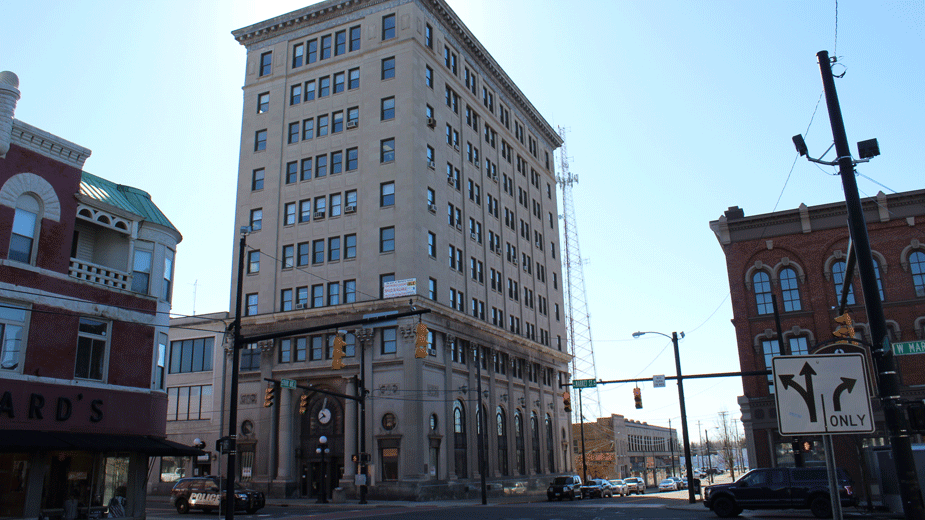YOUNGSTOWN, Ohio – Downsizings and consolidations put former bank branches onto the real estate market, bringing both challenges and opportunities for agents and buyers.
Jim Grantz, broker associate with Edward J. Lewis Inc. in Youngstown, recently sold a building in New Middletown, formerly used by Chemical Bank, to a doctor who is going to convert into her new office. In 2013, he brokered the lease for the Girl Scouts of North East Ohio to move into a former Cortland Bank building on South Avenue in Boardman.
“They’re generally a bit of a challenge because they leave things such as safes and drive-thrus,” Grantz says. “That can be a benefit for some people, but for others it’s a challenge.”
The former Chemical Bank building, for instance, doesn’t have a large vault but it does have a three-lane drive-thru, he says. “It’s not out of the realm of possibility that she could close it in and create something nice with it. The roof is already there.”
The Girl Scouts removed the vault’s door and now uses the safe for storage, he says.
“The banks are going for smaller locations because of online business” and no longer need the space they have, says Alan Friedkin, broker associate with Burgan Friedkin Commercial Group in Liberty Township.
Friedkin is negotiating a contract for the sale of the downtown Warren tower formerly occupied by Chase Bank. “We will probably have a contract within the next few weeks,” he says.
Interested parties from across the country have contacted Burgan Friedkin about the building since it began marketing the property a couple months ago, he reports.
“The Chase building is just beautiful inside, all marble and brass,” he says. “And it has a mezzanine.”
The building is attractive to potential buyers because of the pricing in the local market, which is reasonable compared to other areas. The buyer’s intended use of the property will be part of the agreement that comes with the sale of the building.
Businessmen Bill Axiotis and Nick Liakaris, who also own The Mocha House, “want to make sure the integrity of the property is maintained and it’s going to go to an appropriate buyer,” Friedkin says. “Unless [the buyers] have a particular use that the owners are satisfied with, they aren’t going to turn it over.”
Joshua Langenheim, owner of StoneFruit Coffee Co., bought two former bank sites, a PNC branch in Poland and a First Place Bank branch in Canfield.
“I like banks because the construction is always robust and usually top notch,” Langenheim says.
In addition, a teller lane can convert easily to a drive-thru, with the remaining lanes serving as a patio. Neither of the buildings had a vault, but he “100% would have used them” as features in the renovated buildings, he says.
Converting banks to food establishments is “no easy task,” Langenheim says. The two former bank branches required a “total overhaul.”
“I have always believed in repurposing. I would rather transform something old into something new rather than see it sit and become an eyesore,” he says.
Despite the inherent challenges of former bank branches, Lewis’ Grantz reports the deals for both the Cortland Bank and Chemical Bank buildings were completed in less than a year of going on the market. The sale of the Chemical Bank property took place during the pandemic, he points out. Locations that are for sale are easier to deal with than those available for lease, he adds.
“Money is cheap right now and people like to own. That’s why its easier to sell than to lease,” he says. “The lenders are also very friendly with owner-occupied locations.”
Pictured: The downtown Warren tower formerly occupied by Chase Bank was constructed in 1927.
